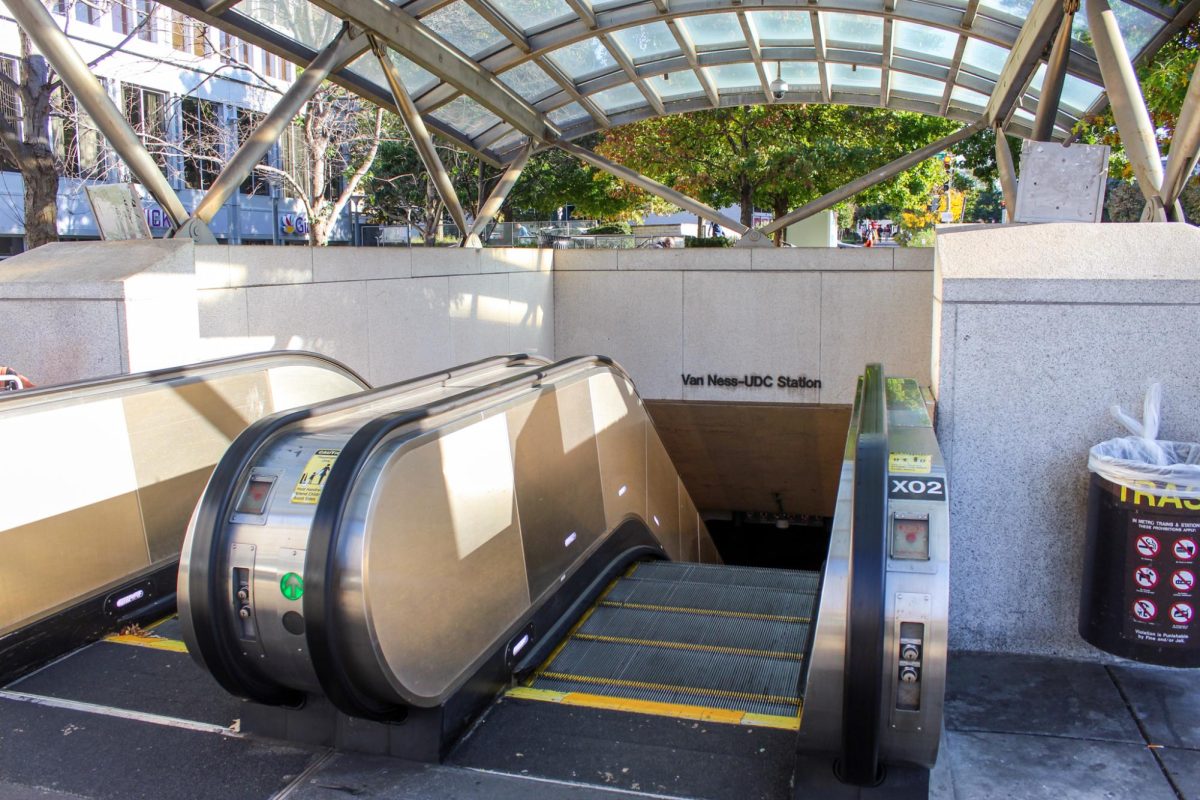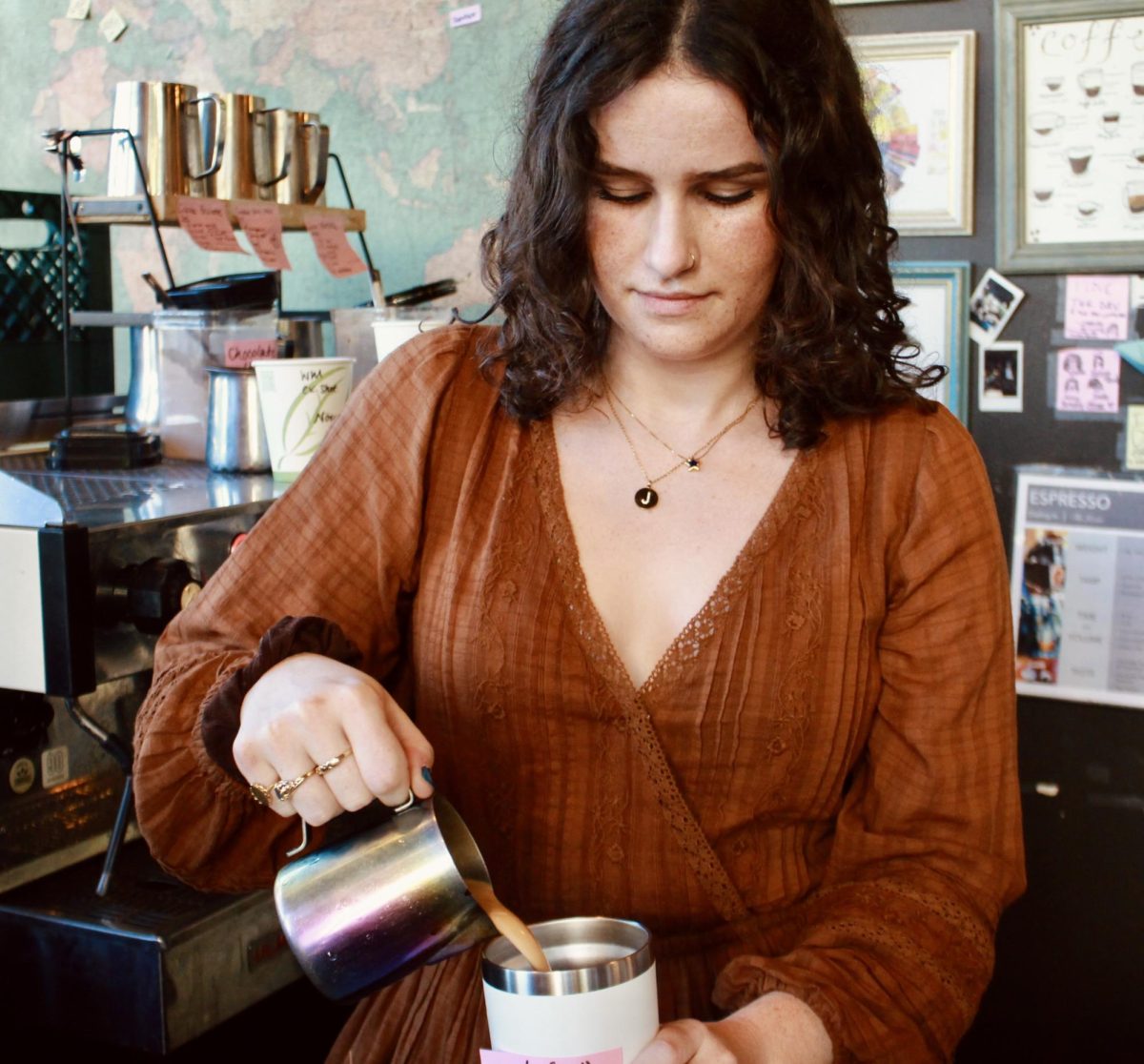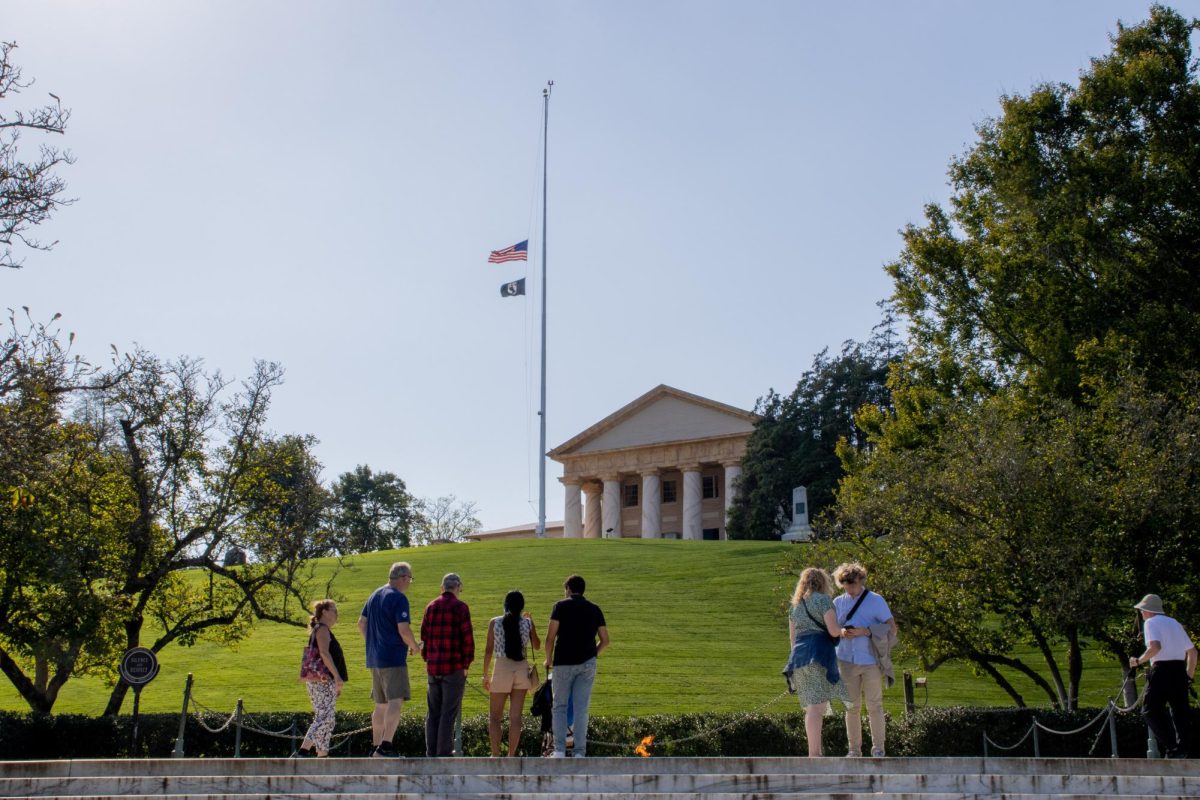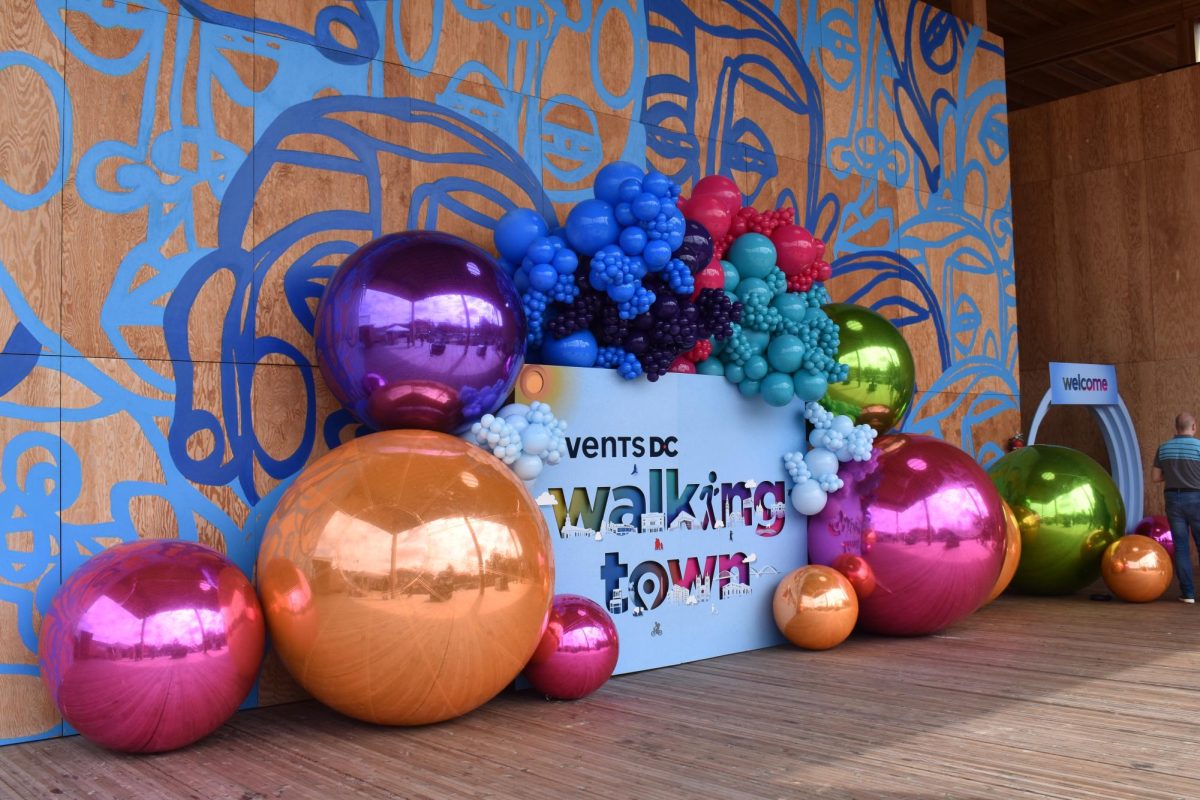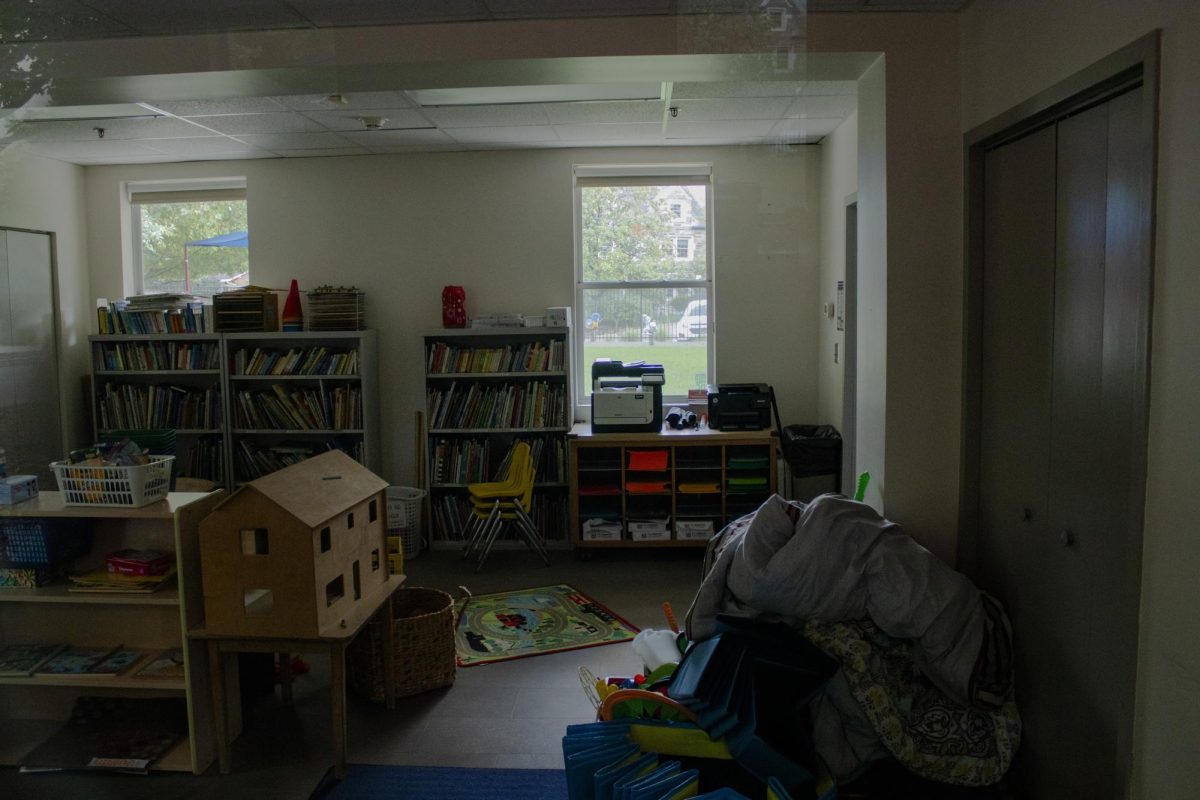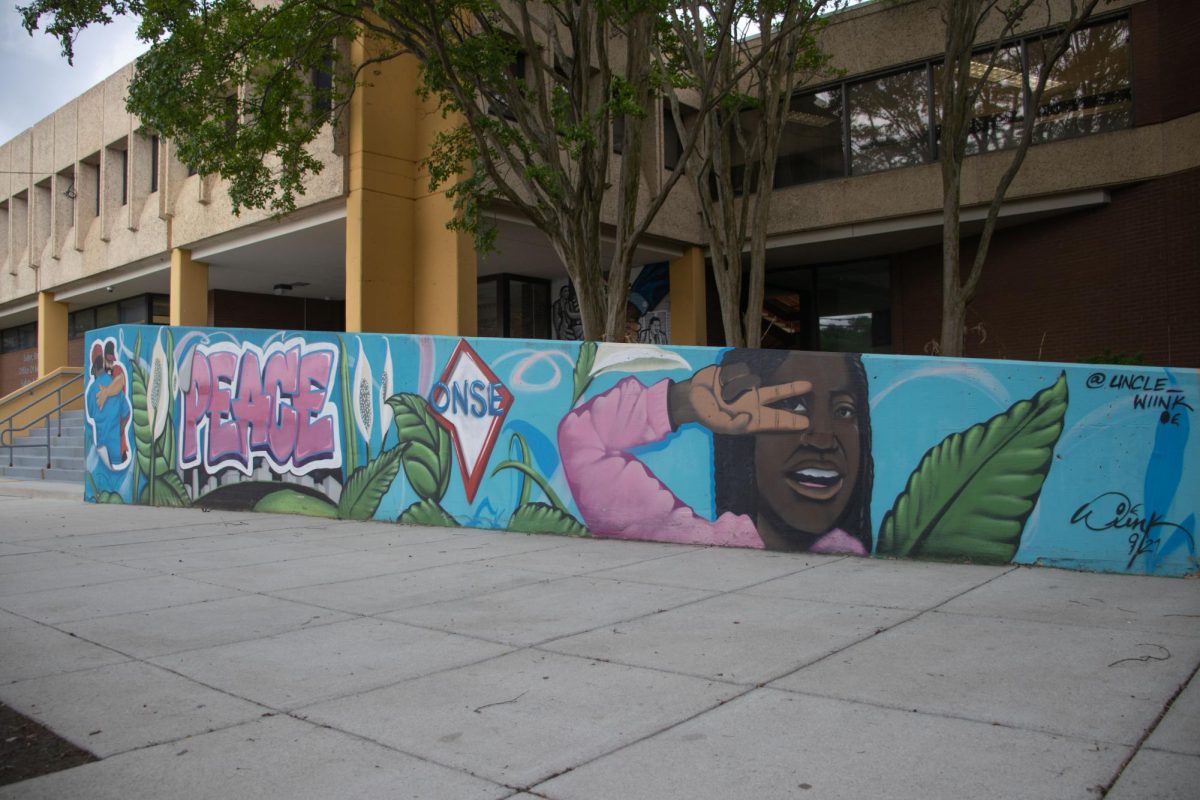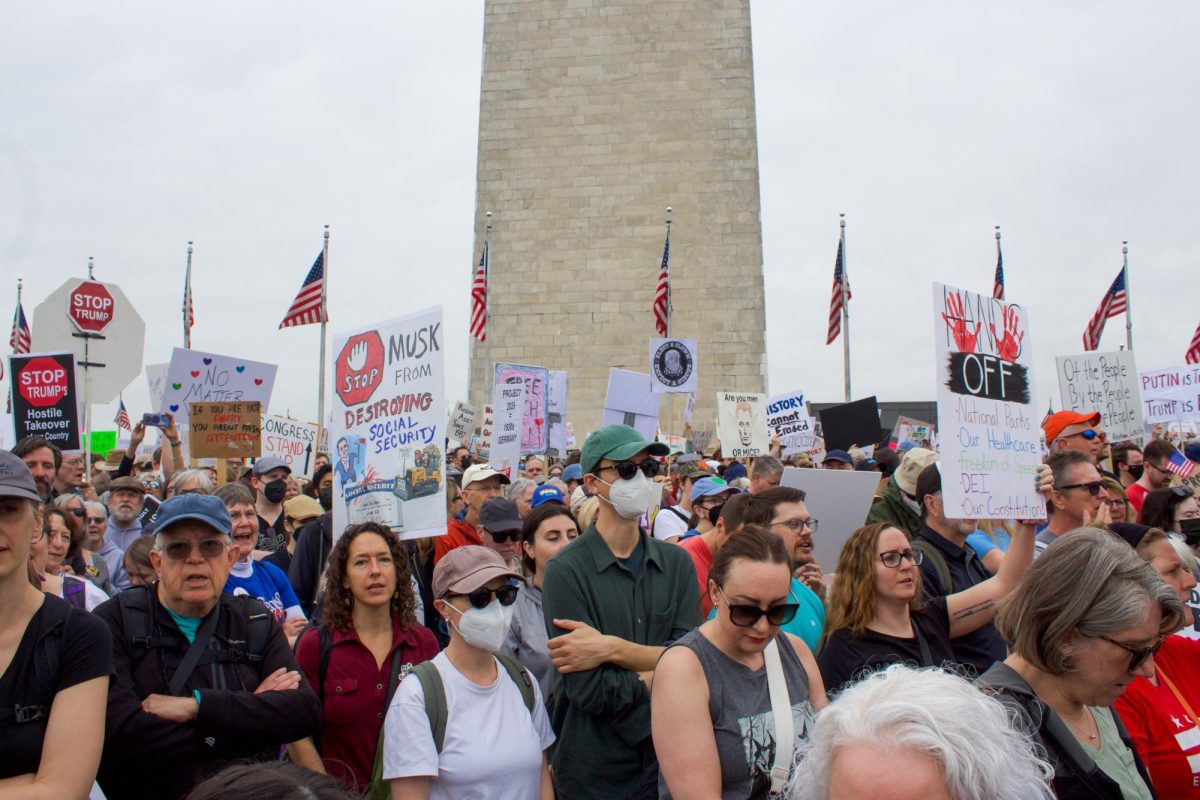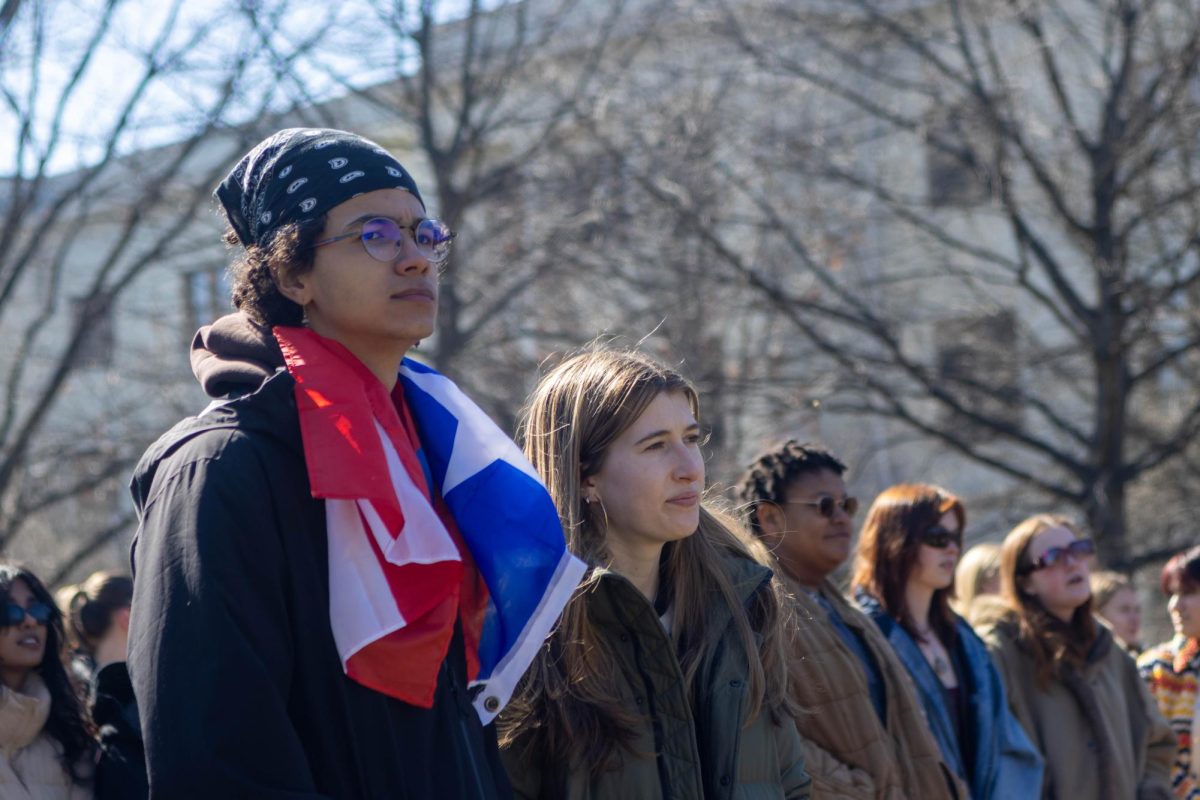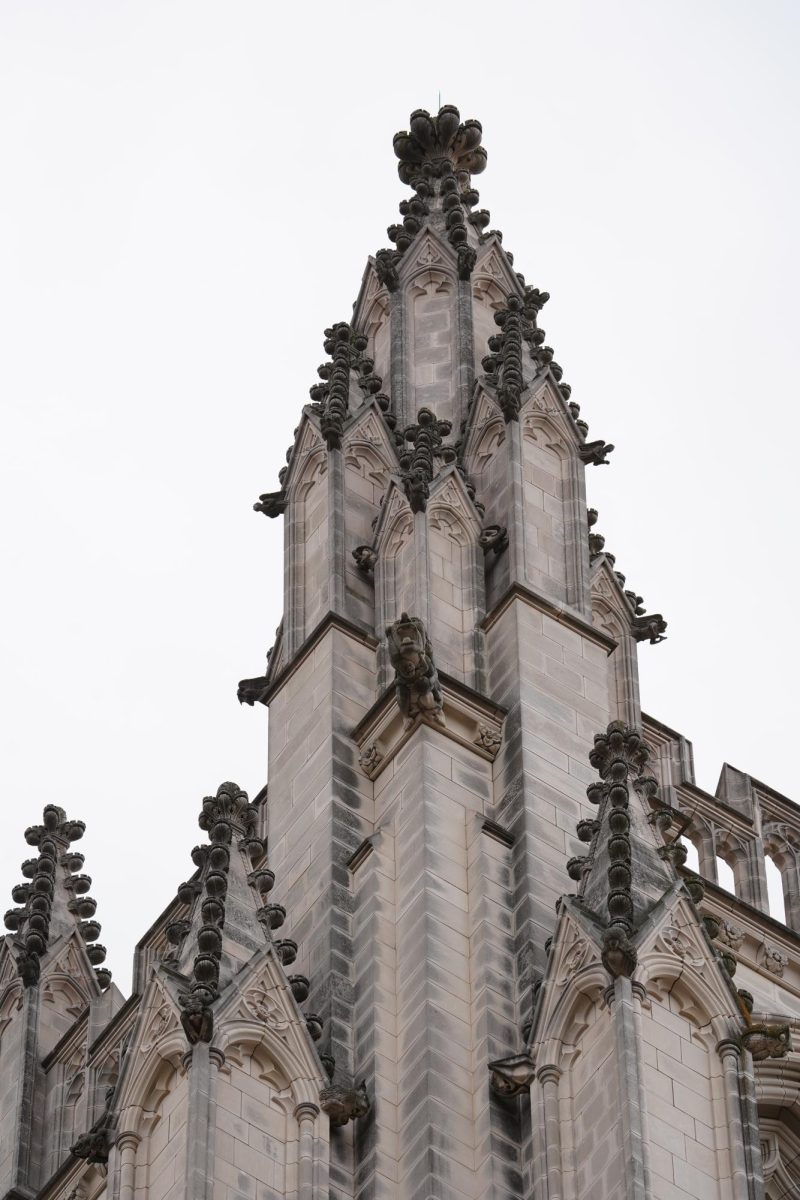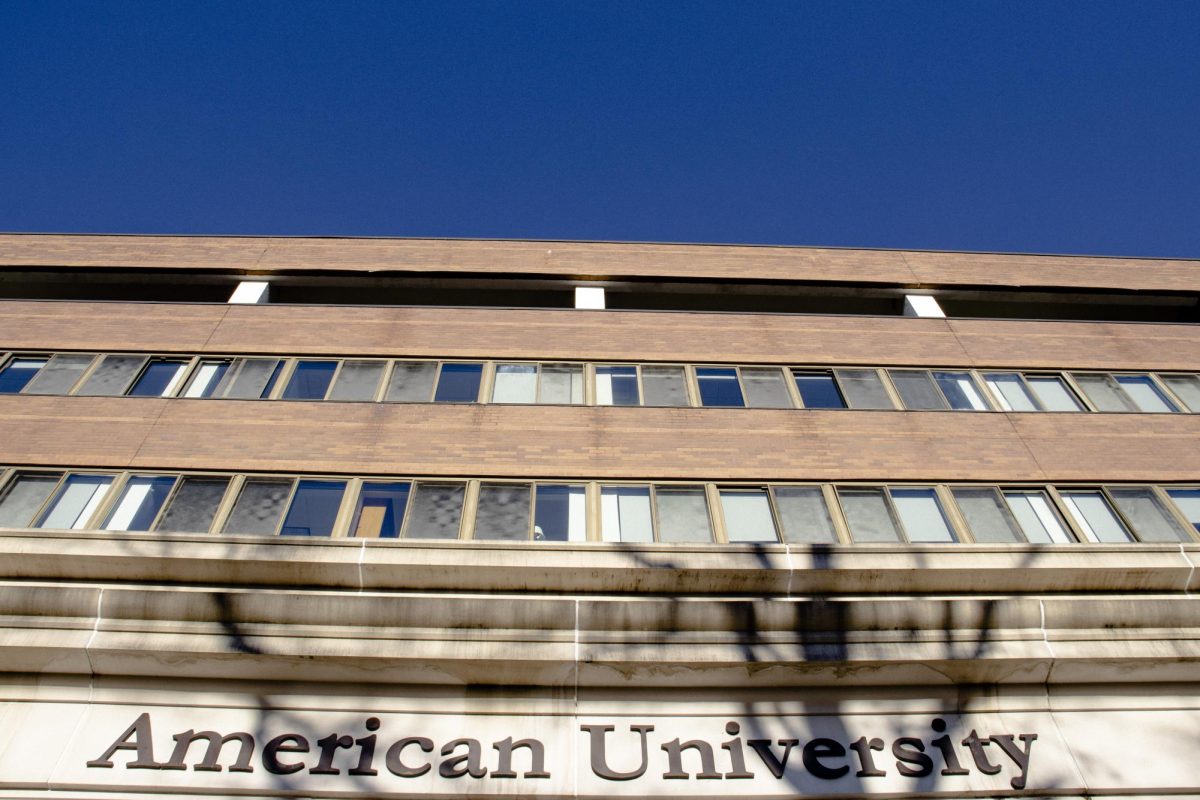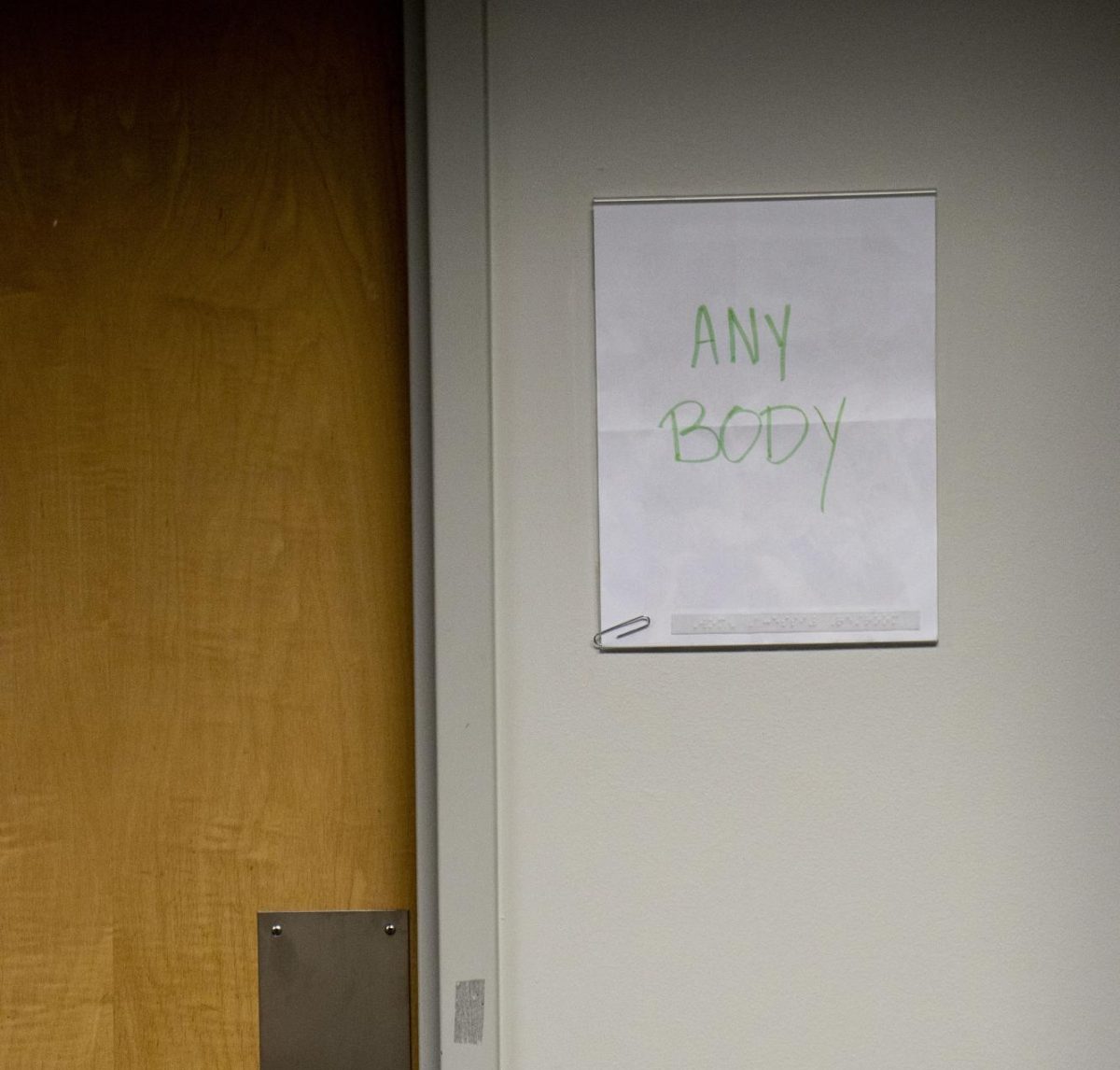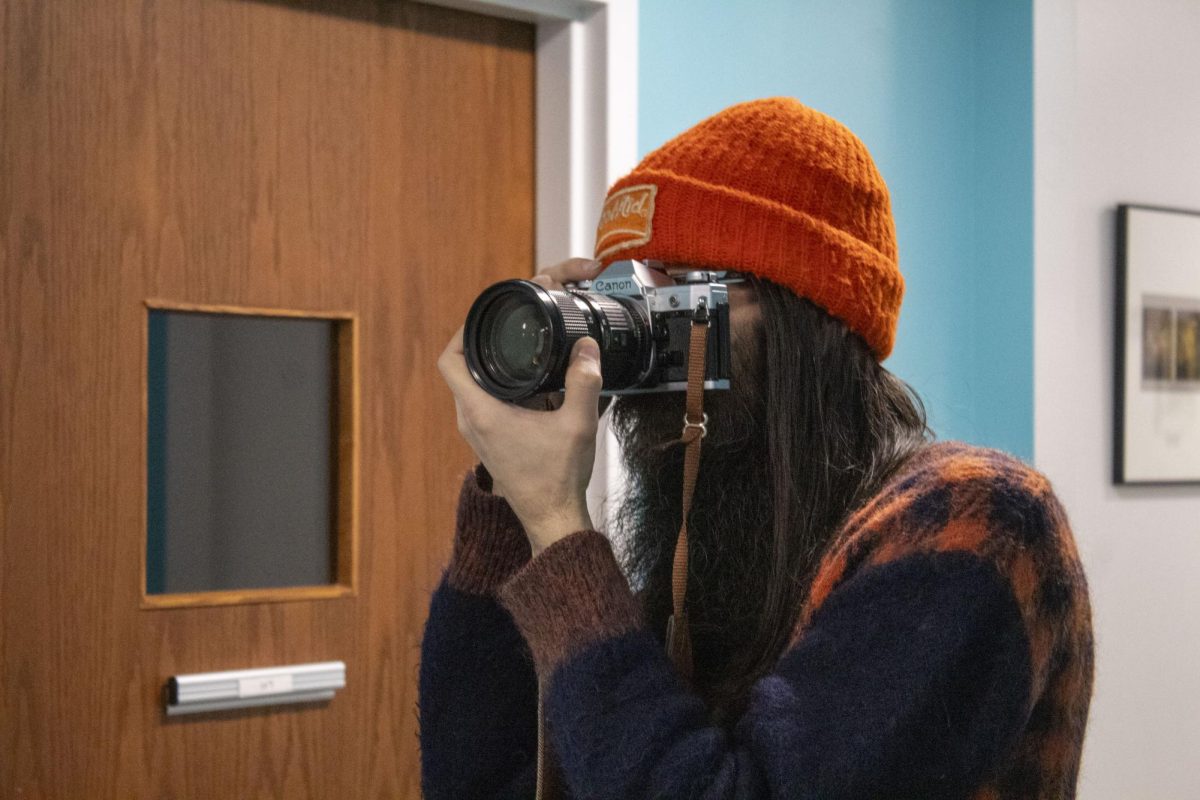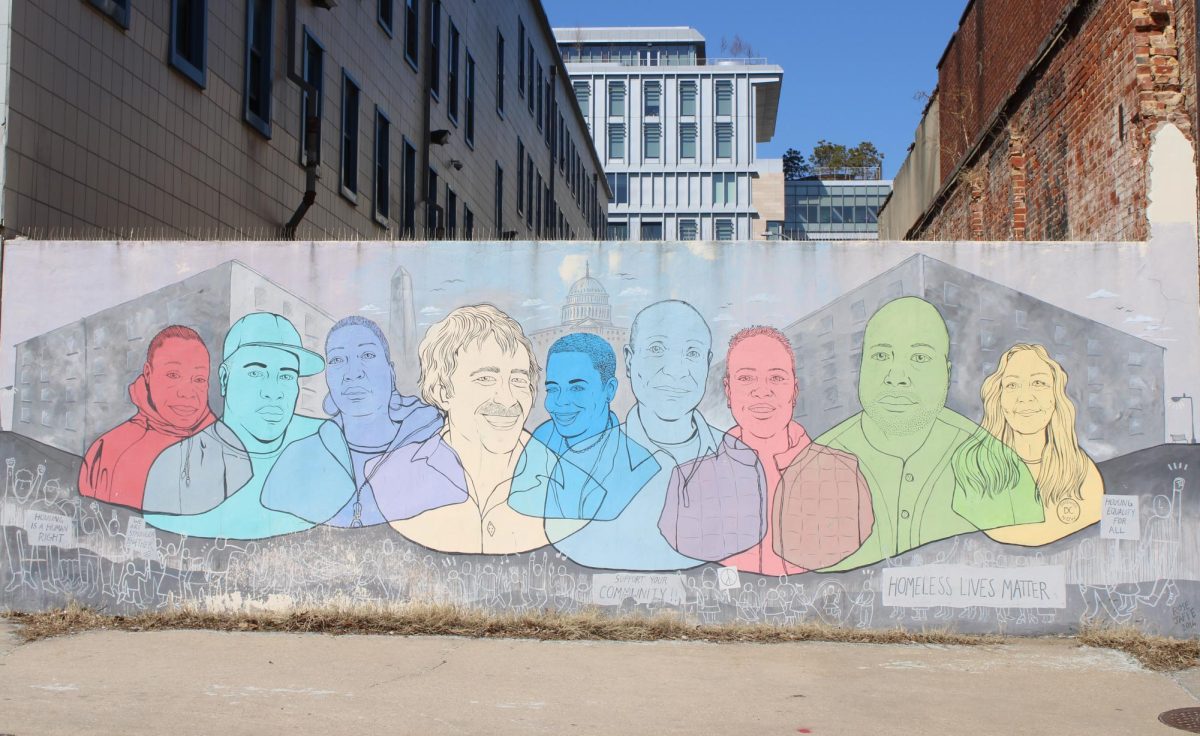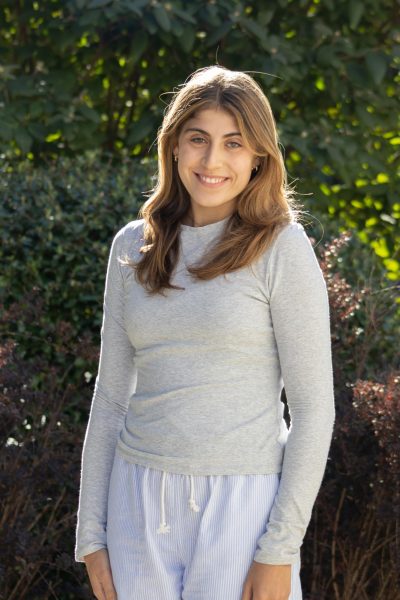Editor’s Note: This article was reported and written before election day, but has been published after.
Before the election, Sarah Bennett planned to vote. The American University first-year student said that although the results have always affected her as an American citizen, being a first-time voter made the 2024 election more impactful.
“I’m really excited to be more involved, especially living in D.C. now, but I’m also nervous and scared for what the outcome is going to be,” Bennett said before the election.
Bennett is a part of the 49% of people aged 18-34 who were likely to vote in the 2024 election, according to a Sine Institute of Policy and Politics’ report, Reimagining Political Leadership: The Outlook of Young Americans.
While about half of young people planned not to vote, according to the report, campaign social media posts and celebrity endorsements appealed to some younger voters. At AU, campus organizations’ initiatives helped others navigate the election while some students expressed a combination of excitement, nervousness and dissatisfaction with the election.
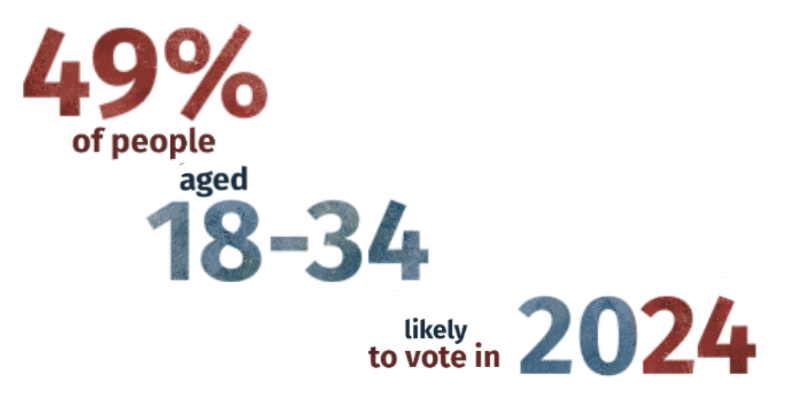
Leadership: The Outlook of Young Americans. (Demitra Moutoudis)
Power of the internet
One way to engage with young voters, the report said, is through social media. According to the Pew Research Center, about 84% of adults between 18 and 29 years old use social media.
Amy Dacey, executive director of the Sine Institute, said she saw the effect the internet could play in the election cycle. She said social media allowed campaigns to reach more people, but at the cost of misinformation.
Still, Dacey, who worked for Sen. John Kerry’s 2004 campaign, said campaigns have to go to the platforms people are on to reach them.
“Early in my career, we would put out information on certain channels, and people would go to them,” Dacey said. “And now really campaigns and elections have to go to where people are. Where are they consuming information? For young people, that could be on various social media platforms.”
Dacey said campaigns could be meeting people both on platforms like TikTok and on a peer-to-peer level.
“I think smart campaigns engage young people to talk to other young people,” Dacey said.
Ainsley Novin, a first-year majoring in musical theatre and business and entertainment, said the 2024 election was her first election and casting her vote is important to her duty as a citizen. She said campaigns that use social media are more relatable because of the prominent role it plays in society.
When musician Charli xcx posted on X on July 21, “kamala IS brat,” the Harris campaign leaned into the messaging to appeal to young voters. On Instagram and X, Kamala HQ, one of the Harris campaign’s social media accounts, posted a parody of the “brat” album’s cover in the lime green, all-undercase style as a rapid response post.
Bennett said she believes the Kamala HQ account effectively reached out to young and first-time voters.
“They’ve been really quick in their turnaround which I think is something that’s really important in how fast everything moves today,” Bennett said.
Young voters prefer young candidates, according to an article published by the Niskanen Center in March. Research conducted by the Berkeley Institute for Young Americans found that young people feel disillusioned because older generations have failed to address the problems they are facing.
But the Constitution requires that presidential candidates be at least 35 years old, and candidates are typically older. According to Encyclopædia Britannica data, reported by Statista, the average age of U.S. presidents taking office for the first time is 56 years old.
Amelie Goodin, a sophomore majoring in public health, said she thinks the ages of the candidates plays a role in how young voters perceive them.
“I think Kamala is really trying to embrace the fact that she’s younger than Biden or Trump, and how they’ve kind of been ragged on for their age,” Goodin said. “And I think she’s trying to show that she’s like, kind of still got it in comparison to Trump and Biden.”
Celebrity Influences
Bennett said she felt celebrity endorsements were important, especially in a more online society. She said parasocial relationships fans have with their favorite celebrities and influencers can influence votes.
“If they see their favorite celebrity endorsing this person they’re going to be like, ‘Oh, I should vote for this person, too,’” Bennett said.
After the second 2024 Presidential debate, Taylor Swift said she was voting for Harris in a Sept. 10 Instagram post. Coinciding with the debate and Swift’s endorsement, younger users of Vote.org registered to vote and verified their registration status by between 10% and 20% more than normal on Sept. 10, according to a Sept. 11 Instagram post by Vote.org.
Other artists also encouraged people to vote. Some, like Harry Styles, Gracie Abrams and Billie Eilish, partnered with HeadCount, a company that helps fans register to vote at concerts and festivals, according to HeadCount’s website.
Elon Musk endorsed Trump in a July 13 post on X, formerly known as Twitter. A political action committee Musk founded also entered people into a lottery for $1 million if they signed a petition saying they support the First and Second Amendments, according to the PAC’s website. Pennsylvania Attorney General Lawrence Krasmer alleged in an Oct. 28 lawsuit against Musk and the super PAC that the $1 million lot-
tery is not random and favored Trump supporters, according to a copy of the lawsuit uploaded by The Washington Post.
Novin said while she thinks celebrity endorsements don’t hurt a candidate’s campaign, endorsements won’t entirely change a voter’s mind.
“Celebrity endorsements — I think it really depends,” Novin said. “It doesn’t hurt. I don’t think it necessarily is going to completely sway a vote, but if there’s a celebrity whose morals align with your own that endorses a candidate, it’s definitely going to help.”
Getting out the vote
Bennett said that although she previously didn’t talk about politics with her friends, the topic has become more prevalent for her since coming to AU.
“In the past, I never really talked about politics with my friends,” Bennett said. “But coming here it’s a very political climate.”
In the runup to the election on campus, AU Votes, a program run by AU staff, aimed to help students make their voices heard, according to AU’s page for the organization. The organization hosted experts in Bender Library to help students register and cast their ballots.
These experts were available on campus from Sept. 16-20. AU Votes asked people if they had a voting plan and hosted stations outside and inside the library with voting information on flyers, according to AU Votes.
In addition, Voters of AU, a student organization on campus that promotes voting, hosted a Donuts and Democracy event for students, faculty and staff, according to the club’s Engage page. The event included donuts and gave information about the 2024 ballot.
Novin used these AU resources to register to vote and get her absentee ballot.
“It was helpful to figure out the website and have easy accessibility to know where to go,” Novin said.
Voting as a democratic process
There’s been a spike in youth voting over the past two presidential elections, according to Dacey. She said young people are typically motivated to vote by issues they care about.
For Goodin, those issues were abortion and immigration.
“Abortion is probably the most pressing topic on my mind,” she said. “I feel like a lot of things will change if Trump becomes president, in terms of immigrants and perception of immigrants and women’s rights and stuff like that.”
According to the Harris-Walz campaign, Harris planned to sign a bill to reinstate reproductive rights and veto any national abortion bans.
Trump, meanwhile, ran on his opposition to late-term abortions and support for parental care policies and birth control, according to the Trump-Vance campaign.
Sawyer Dearing, a first-year majoring in communication, law, economics and government, said he does not want to live in a country where Trump is president. He said he has concerns about the future of the Department of Education.
“If they are downsizing or getting rid of it, that would hurt me as a low-income student who relies on the FAFSA,” said Dearing.
A week before the election, Bennett said she was nervous for the outcome but excited to be voting. Bennett was not altogether surprised at the Sine Institute’s finding that only about half of young people planned to vote. But at AU, she said the energy was different. Bennett said, at AU, everyone was talking about the election.
“It seems like people are really passionate about it, and that the university seems very intent on making sure that everybody can vote,” she said.
This article was originally published in Issue 35 of AWOL’s magazine on November 19, 2024. You can see the rest of the issue here.


